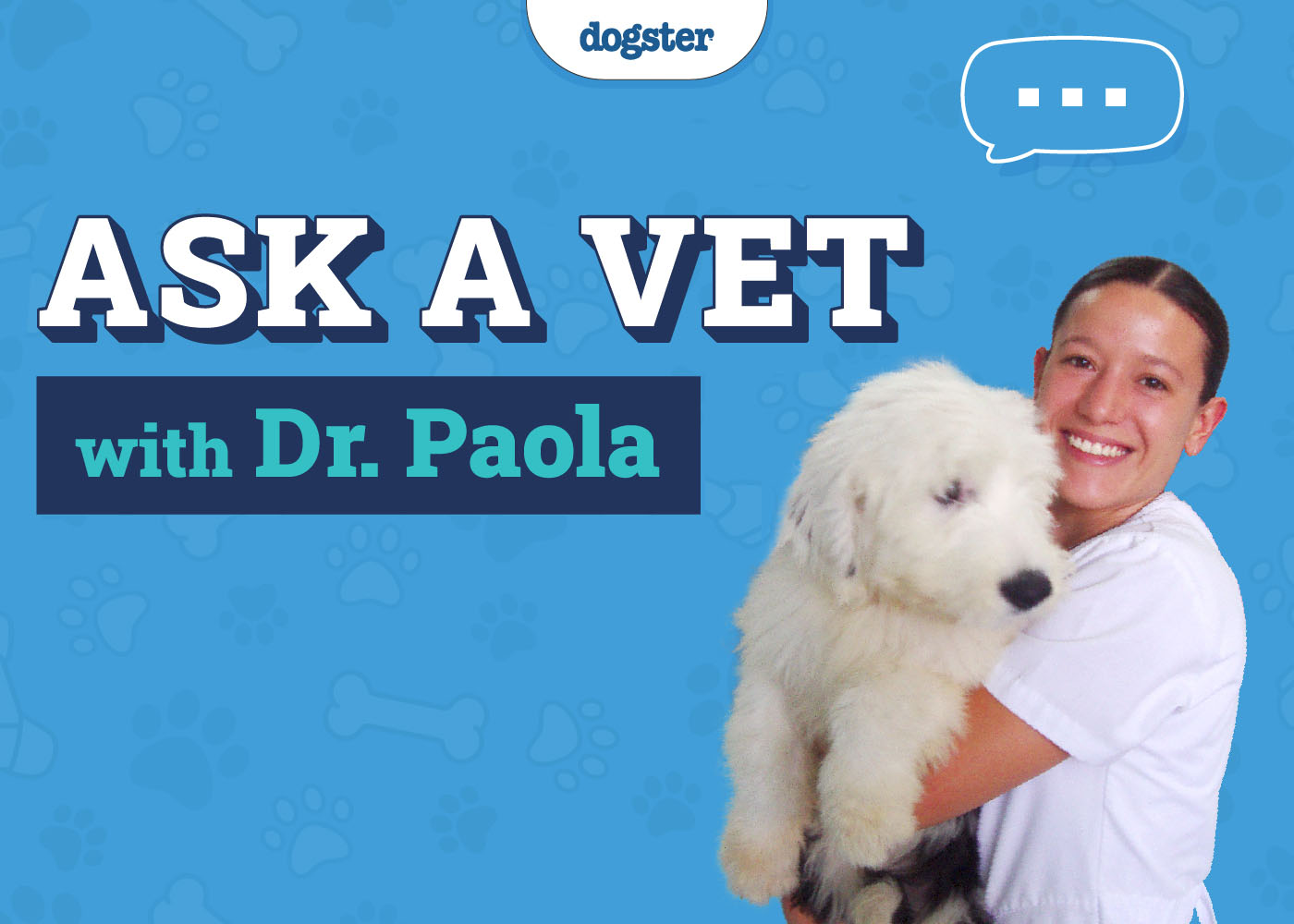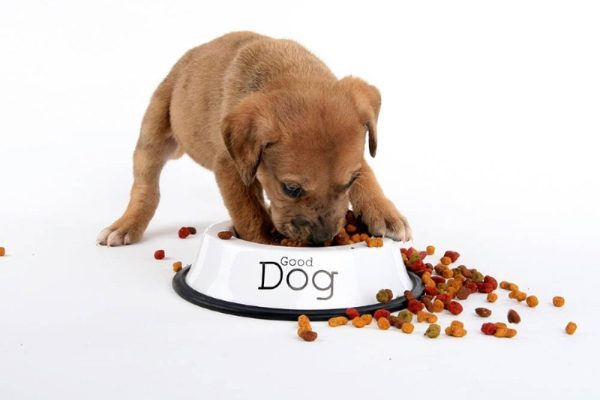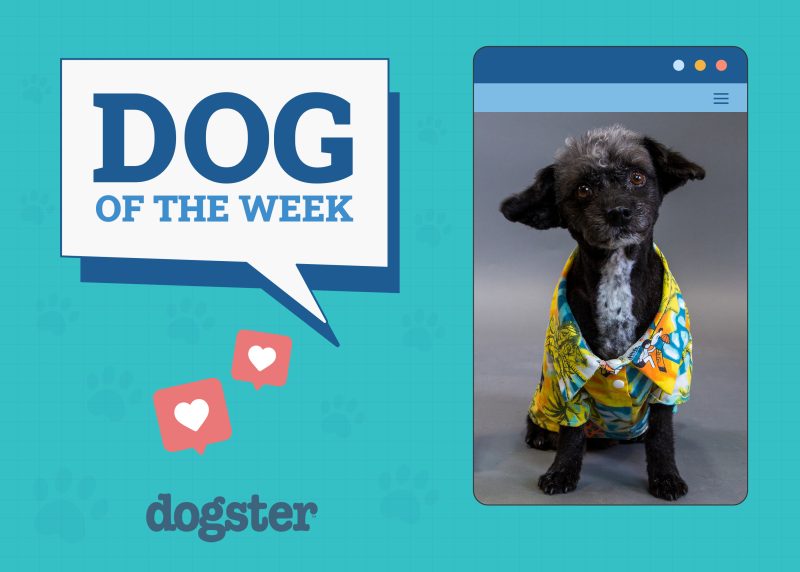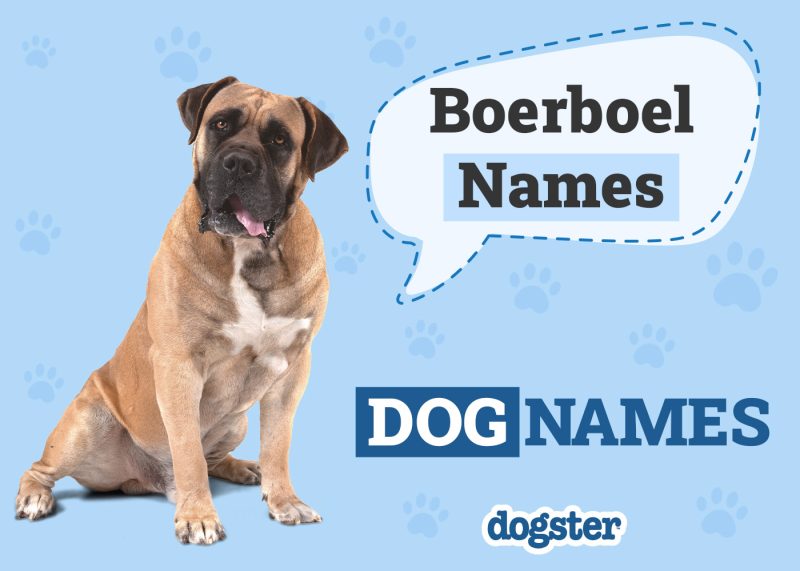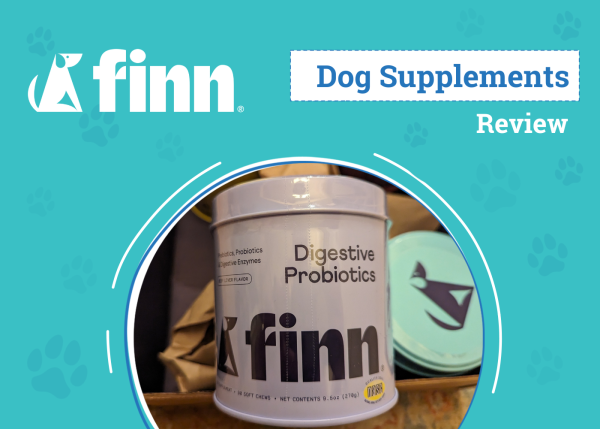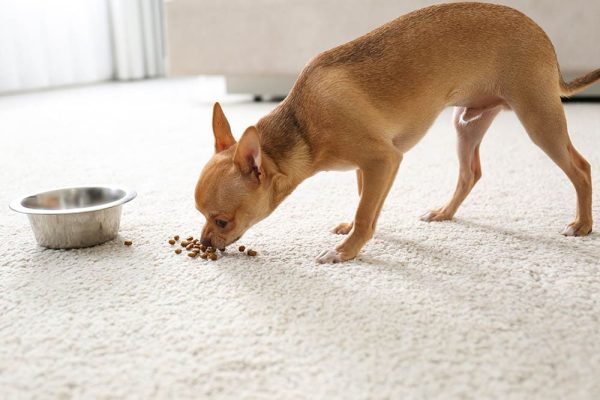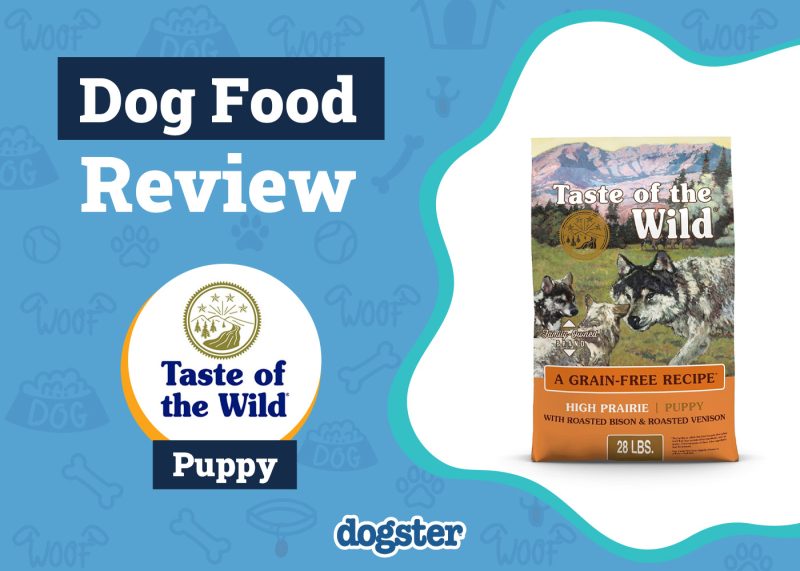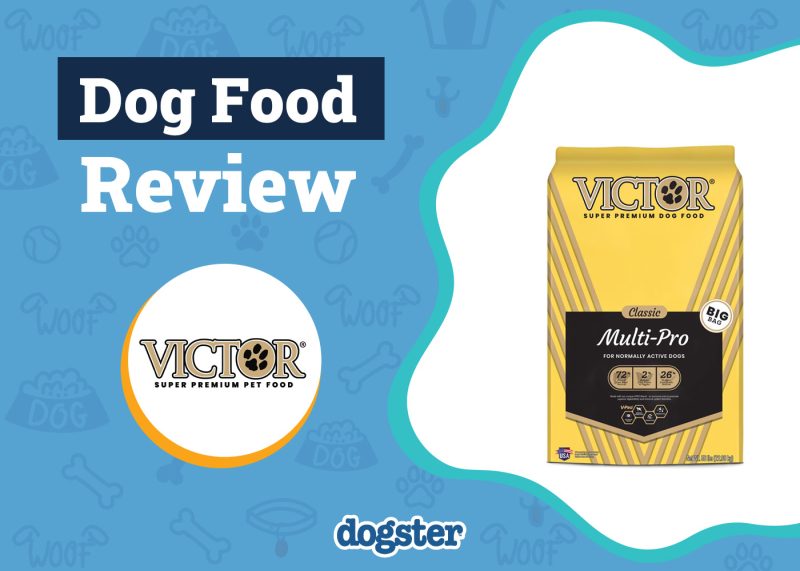Welcome to our “Ask Dr. Paola” series, where every Monday we bring expert advice straight from Dr. Paola Cuevas (MVZ) to help our readers better understand their dog’s health and well-being.
Whether you’re a new pet parent or a seasoned dog lover, Dr. Paola is here to provide answers to your most pressing questions. From nutrition tips and preventive care to troubleshooting common behavioral issues, Dr. Paola is ready to offer insights that will keep your furry friend happy and healthy. Stay tuned for expert guidance on a range of topics that matter most to you and your dog, so you can make informed decisions and provide the best possible care for your canine companion. Have a question? Send it in here!

Help! My Dog Eats Grass Daily!
“Hi Dr. Paola,
Rex eats grass daily. Every time he goes outside, he eats grass. I’ve been told that dogs only do this when they are feeling sick, but he has zero other symptoms. He’s a 4-year-old Lab mix and has been doing this since he was a puppy. Should I worry? ”
– Gayle
Hi Gayle,
Grass-eating pups often concern pet parents, and I’m glad you’re paying close attention to Rex’s behavior. The idea that dogs only eat grass when they’re feeling unwell is a widespread myth, but it’s not entirely accurate. While some dogs may occasionally eat grass and then vomit, most dogs that graze do not show any other signs of illness, and it doesn’t necessarily indicate that something is wrong.
In Rex’s case, since he has been consistently eating grass since puppyhood, shows no signs of illness, and appears otherwise healthy and active, this behavior is likely a normal part of his routine. Dogs may eat grass for various reasons, such as boredom, curiosity, or simply because they enjoy the texture or taste. Some behaviorists also believe it may be an instinctive behavior inherited from wild ancestors who consumed plant matter found in their prey’s digestive tracts. It is also possible they are looking to add some fiber to their diets. Some vets suggest they may be looking for specific enzymes, although there are no studies about this. As long as Rex is on a complete, balanced diet, has regular veterinary check-ups, and isn’t ingesting chemically treated grass or toxic plants, this habit is usually harmless. Think of it a bit like a human nibbling on parsley or chewing gum out of habit.
If you ever notice a sudden increase in the intensity or frequency of the behavior, or if it’s accompanied by other concerning signs like decreased appetite, changes in stool, or lethargy, it would be wise to consult with your veterinarian. But based on what you’ve shared, there is no reason to worry at this time. Just be proactive and allow him to chew on chemical-free grass. I hope this gives you some peace of mind!
– Dr. Paola
If you want real time answers to your questions, you can talk to one of our veterinarians online. Click on the image or button below:


Thoughts on Anti-Aging Pills for Dogs?
“Hey Dr. Paola,
What do you think of the new anti-aging pill for dogs?“ – Su
Hey Su!
I find it super interesting and exciting! The idea that we may soon have safe, effective tools to extend our dogs’ health and lifespan is truly groundbreaking. Advances like LOY-002 and LOY-003, both under development by Loyal, reflect how far veterinary science has come in understanding and addressing the aging process. LOY-002 is a daily, beef-flavored pill designed for senior dogs over ten years of age and at least 14 pounds. It acts as a caloric restriction mimetic, which means it aims to deliver the benefits of a reduced-calorie diet, such as improved metabolic health and delayed onset of age-related diseases, without actually reducing the dog’s food intake or causing unwanted weight loss. LOY-003, meanwhile, targets large-breed dogs earlier in life, aiming to slow down the more rapid aging these breeds typically face. Both medications are still undergoing clinical trials, but LOY-002 has already earned a “reasonable expectation of effectiveness” designation from the FDA, signaling progress toward conditional approval.
Equally compelling is the research being conducted by the Dog Aging Project on the use of rapamycin, a drug originally used as an immunosuppressant. Rapamycin is being studied for its potential to improve cardiac and cognitive function, with the hope that it may extend the canine lifespan by 15%. This approach builds on findings from other species where the drug has shown potential to enhance longevity. While rapamycin is not currently approved for anti-aging use in dogs outside of controlled studies, its exploration marks a significant moment in our understanding of the biology of aging.
While these innovations are incredibly promising, they should complement, not replace, the essentials of lifelong health. A complete and balanced diet that is fresh, nutrient-dense, and minimally processed, with naturally occurring antioxidants, plays a vital role in supporting your dog’s immune function and cellular health. When combined with regular veterinary care, mental enrichment, physical activity, and lots of love, these foundational practices remain the most powerful tools we have to help our dogs age with strength, dignity, and joy. Thanks for bringing this up in our weekly space, Su. I am confident many pet parents will be excited to learn about these promising advances in veterinary science!
– Dr. Paola

Help! My Dog Has Heartworm!
“Dear Dr. Paola,
I rescued Benji one month ago from the Humane Society in Palm City, and he was a stray dog. I am very concerned because he has heartworm and they gave us an antibiotic that we should give him for a month and they told us that after that we have to leave Benji there for 2 days, because they have to give him 2 painful injections of arsenic and i can’t see him for 2 days because it will be tough on Benji. We research and find out that the protocol is different.
We took Benji to the Vet, and she told us that after the antibiotics we have to give him one pill of NexGard and wait one month and after that we take him there for the injection and the same day we can pick him up and in case he doesn’t respond well we have to find a clinic and leave him there. This has to be repeated 2 more times because the injections are 3 and not 2 at the same time, like the Humane Society told us.
My heart is sinking because I don’t want him to have pain, anxiety, and feel that we abandon him in the moment that he needs the most. I would appreciate it if you could guide me in this difficult situation, because I don’t know much about it and I don’t want to lose Benji.He has some good days, but he also has bad days when he doesn’t want to eat anything or drink water, and he is lethargic, which makes me really worried.
Benji is a mixture of Maltese, Westie, and Terrier, and because he was a stray dog, they think that he is 5 or six years old according to his teeth. I appreciate your help.
Sincerely,” – Ines
Dear Ines,
Thank you for rescuing Benji and for giving him a second chance at a safe, loving life. What you’re going through is incredibly hard, and your concern for his comfort and emotional well-being shows just how deeply you care. Heartworm treatment can be a complicated and emotionally draining process, but you’re absolutely doing the right thing by staying informed and seeking clarity.
Heartworm disease is serious, and treatment must be carefully timed and structured to reduce the risk of complications, especially from the death of adult worms, which can cause dangerous inflammation and blockages in the lungs. The standard protocol recommended by the American Heartworm Society involves a multi-step process: first, a 30-day course of doxycycline, an antibiotic used to target a bacterium that lives within the heartworms called Wolbachia. This initial antibiotic treatment weakens the heartworms and reduces the risk of a severe inflammatory response. Then, after about 30 days, a heartworm preventive like NexGard or a macrocyclic lactone is given to kill immature larvae. One month later, the adulticide treatment begins with a deep intramuscular injection of melarsomine (an arsenic-based drug), followed by two more injections 24 hours apart, about a month later. This multi-step approach is designed to kill the worms gradually, lowering the risk of life-threatening clots and reactions.
It’s true that the injections can be painful, and Benji will need to stay calm and rested. Activity restriction during the treatments is essential to avoid stressing his heart and lungs. Especially after the injections, because as the worms die, they can break up and cause blockages in the lungs if the dog exerts himself too much. The decision to hospitalize a dog or not during these injections depends on their overall health and how they handle the medication. Some clinics prefer to keep dogs overnight for observation, especially after the final two injections. Others may allow discharge on the same day with strict home care instructions. Both approaches can be valid when they are tailored to the dog’s specific condition. Since Benji has already shown signs of lethargy and loss of appetite, it’s very important to report these to your veterinarian. These may or may not be related to the heartworm infection, but they do merit attention before moving forward.
Benji is lucky to have you as his guardian. With patience, close monitoring, and a thoughtful treatment plan, many dogs recover fully and go on to live long, happy lives. Please remember, you’re not alone in this. You’re navigating something challenging, but there are protocols and treatments available, and your love and care are the most powerful tools in helping Benji heal. Thank you again for your kindness in adopting Benji. I admire you.
Sincerely,
– Dr. Paola
- View past week’s questions here: May 26, 2025
- See our full list of past articles here
- Click here to submit a question
- Get Dr. Paola’s weekly advice sent straight to your inbox. Sign up below!


